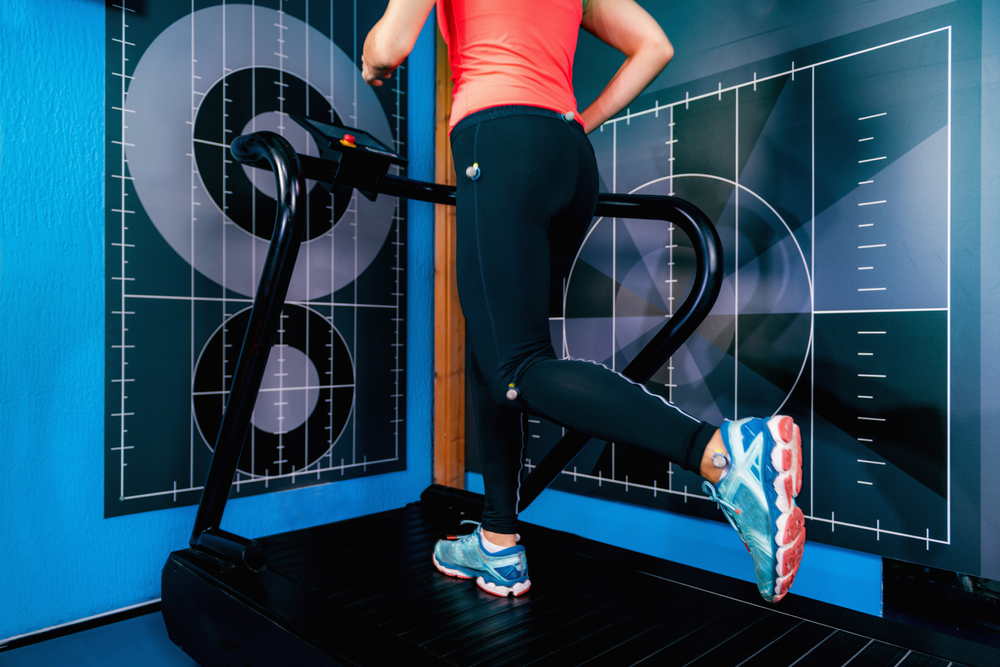For most people, walking is the most common way to get from point A to point B. In fact, most of us walk about 75,000 miles over our lifetime. Many of us take the ability to walk for granted, without concern about losing our stride. If you’ve been injured or have a debilitating physical condition, you may notice an impact on your ability to walk.
Physical therapists can help identify the cause of your walking troubles. They can also develop a personalized treatment plan to address them. Your physical therapist will likely perform a functional gait assessment at the beginning of your treatment program. This will allow them to learn how your injury or condition is affecting how you walk.
Learn more about functional gait assessment
Your gait refers to your manner of walking, so a functional gait assessment examines many factors of your walking ability. This type of evaluation works by monitoring your movement on a treadmill or walkway with high-tech motion-tracking cameras. These cameras help trace the following for an accurate physical therapy diagnosis:
- The movement of each of your joints — It measures the movement of each of your joints — from the small joints in your toes to your ankle, knee and hip. The size of these movements is recorded as you walk on a treadmill.
- Stride distance — Stride distance is the distance between successive placements of the same foot. It is calculated by measuring how far one of your heels moves when you take a step.
- Impact of the force of each step — The force of each step is an important factor in evaluating the gait cycle. The forces are higher with running, and the impact of each step is greater. Injuries to the foot and ankle can lead to changes in the way the force is distributed through the foot, which may lead to an increased risk of injury or pain.
- Speed and rhythm — Walking or running speed and rhythm are important in making a final prognosis. The ideal speed is determined by observing the patient in different environments. This includes the home, the workplace and leisure activities. A timer or other measurement device can then be used to measure at what interval your feet hit the ground.
- Position of feet and ankles — The position of the foot along with the position of the ankle during walking can be used to assess gait quality.
When should you seek a functional gait assessment?
If you have any issues or concerns about your ability to walk effectively, then you should visit a physical therapist for a functional gait assessment. Furthermore, patients with the following conditions can benefit from this service:
- Plantar fasciitis (pain in the heel).
- Knee pain.
- Lower back pain.
- Hip or knee bursitis.
- Shin pain and more.
What treatment options can your physical therapist offer after your gait assessment?
Once your evaluation is complete, your physical therapist will be able to develop an individualized treatment plan for you. Knowing the exact details of your walking ability helps your physical therapist recommend treatment techniques that can better meet your needs. They can also make footwear recommendations intended to help improve your stride and provide comfort.
Other treatment techniques your physical therapist may use to help improve your walking ability include:
- Manual therapy.
- Instrument-assisted soft tissue mobilization (IASTM).
- Virtual care.
- Myofascial release.
Armor Physical Therapy offers functional gait assessment
Would you like to speak with a physical therapist to discover how a gait evaluation can help you? Our Armor Physical Therapy team is ready and willing to help you get the care you need. We offer free screenings that can reveal the source of your walking difficulties. Our team also excels at building individualized therapy plans intended to reduce pain and improve your ability to move. We can even get you started with physical therapy without a doctor’s referral.
Contact us today for more information about our physical therapy services or to schedule an initial appointment.


